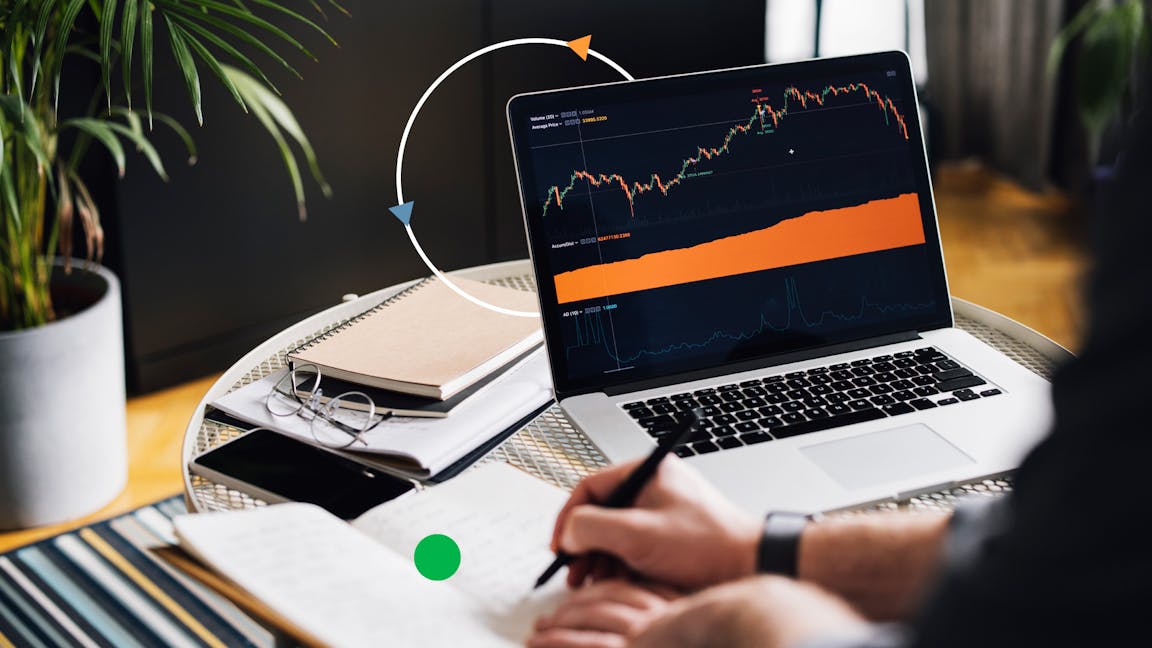
Interest in investing has flourished in recent years with more accessible information and coverage on companies, especially household names in tech such as Apple and Alphabet which are now among the world’s largest. While we do track the influence of individual stocks, the Nutmeg team is instead far more concerned with the indices that house them. Here’s why.
It’s encouraging that more people have been putting their money to work in recent years, which has been prompted by low interest rates – which can make stocks very attractive compared to putting money into savings accounts or bonds – and (mostly, until recently) rising markets.
As markets rallied last year following the lows of the first Covid lockdowns, it was no surprise to hear of record retail investor inflows and new broker accounts opened both in the UK and US. Many of the most traded stocks last year were tech related, including the likes of Apple, Microsoft and computer chipmakers AMD and Nvidia, as well as electric car manufacturers Tesla and NIO.
We’ve also seen the rapid rise (and sometimes just as rapid fall) of the so called ‘meme stock’ phenomenon which saw shares in companies such as GameStop suddenly gain huge traction; billed as ‘the Reddit traders taking on the Wall Street elite’. Still, the consequences of this trend may be longer lasting, with The Financial Times among those asking whether we are seeing a new era of retail trading.
Unfortunately, inexperienced retail investors picking stocks for the first time would have more than likely been disappointed in 2022 as markets have proved volatile. Many of the stocks that investors had piled into prior to this year – especially big tech, which was one of the few sectors to have largely seen business models boosted by lockdown – have had a less prosperous time of it this year.
We believe investing should always be a long-term process, but this doesn’t negate the fact that short-term movements in stock prices can have a significant impact – for example, shares in Facebook fell 26.4% on 3 February this year, wiping off more than 30bn in the company’s market value in one day after a disappointing earnings announcement.
The case for funds
Of course, if you held a diversified selection of stocks then this fall might not be so painful to your overall portfolio, but how many investors really have the time and the expertise to research and trade enough individual stocks to spread out the risk adequately?
One solution might be to employ one or several professional stock-picking fund managers to trade what they believe are the best stocks or bonds within a specific sector, market, region or theme. Active fund managers are certainly a popular option, helped it must be said by enormous marketing budgets and an established asset management industry that makes big money from transactions and high-margin products. Some of these managers do indeed deliver positive results for investors but, as we have discussed before, there are accompanying risks.
Firstly, active funds can be expensive as the fund manager needs to take their cut. The majority carry an ongoing charges figure (OCF) of between 0.5% and 1.5%, which might sound reasonable if the fund outperforms, but bear in mind that this will have to be paid even if the fund loses you money. Passive funds, and the portfolios that hold them, also carry charges that work in a similar way, but they tend to be lower.
Secondly, in most cases active funds underperform their benchmark indices, normally markets that can be tracked with passive exchange traded funds (ETFs). As the most recent, renowned SPIVA scorecards show, a large majority of active funds have underperformed globally on a one, three, five and 10-year basis to end of December 2021.
Tracking markets
This brings us around to how Nutmeg invests, via ‘passive’ ETFs which track rather than try to beat market indices. Asset allocation, where we divide individual portfolios among different asset categories, is widely considered to be the main driver of risk and return in investing, and so is fundamental to the way we invest at Nutmeg. On this basis, we’d rather have diversified market exposure versus active stockpicking where, as we have seen, the odds of outperformance are stacked against you.
In choosing to pick markets rather than stocks, this means we also know what we own and how it represents our view. For example, we could choose a US equity fund run by an active fund manager who invests specifically in this market, but we would also be giving over control to them to have a sector view. What if we favour financials, but the manager prefers to buy more tech stocks? How would that effect our overall risk and positioning? With passive, we are granted greater transparency and accountability on our convictions.
Keeping to the tech example, the US Nasdaq, home to many of these giant stocks, has been one of the biggest underperforming markets this year. While we still hold some of these dual-listed companies through their position within the preeminent S&P 500 index, we made the decision to sell down our holdings of the Nasdaq in late 2021, which has so far proven to be the right choice. If we believe this index looks oversold, or valuations are attractive, then we can easily buy back in when the time suits.
Favouring ETFs also keeps us diversified. Nutmeg’s universe of available ETFs spans over 1,800 strategies, with the average Nutmeg Fully Managed portfolio containing over 8,000 underlying securities, diversified across global equity, bond and commodities markets.
As we’ve already discussed, ETFs are also usually a much cheaper way to accurately track markets which evidence shows most active managers find hard to beat. While the ETFs themselves may be ‘passive’, the Nutmeg investment team is analysing macro-economic and market conditions on a full-time basis. We make active decisions on which markets we want to invest in, by how much we want our portfolios to hold in these markets through asset allocation.
Keeping diversified
The likes of Apple, Microsoft, Amazon, Tesla, and Alphabet are among the world’s largest companies, and we would not choose to avoid them altogether. However, having over-concentrated exposure to them is a huge risk, which should be recognised by retail investors with much smaller and less diversified portfolios.
Diversification is a core principle of portfolio construction which should not be taken lightly. With globally diversified multi-asset portfolios, such as the ones we offer at Nutmeg, we can take a more hands on approach combining both growth-related assets, such as a large pool of equities, and income-bearing investments, usually bonds, to factor in both your appropriate risk level and timescale for investing.
For those who do wish to incorporate some active stock selection in their investments, the Nutmeg Smart Alpha portfolios, powered by J.P. Morgan Asset Management, are worth consideration. These combine Nutmeg’s core investment principles and investment expertise with the in-house, multi-asset knowledge and experience of one of the world’s leading investment houses, but again remain highly diversified.
For those still unsure about investing and who may need help to map out their financial future and find out how to make the most of different investment products, consider contacting the Nutmeg wealth services team who will be able to point you in the right direction.
Risk warning
As with all investing, your capital is at risk. The value of your portfolio with Nutmeg can go down as well as up and you may get back less than you invest. Past performance is not a reliable indicator of future performance. Tax treatment depends on your individual circumstances and may be subject to change in the future.
